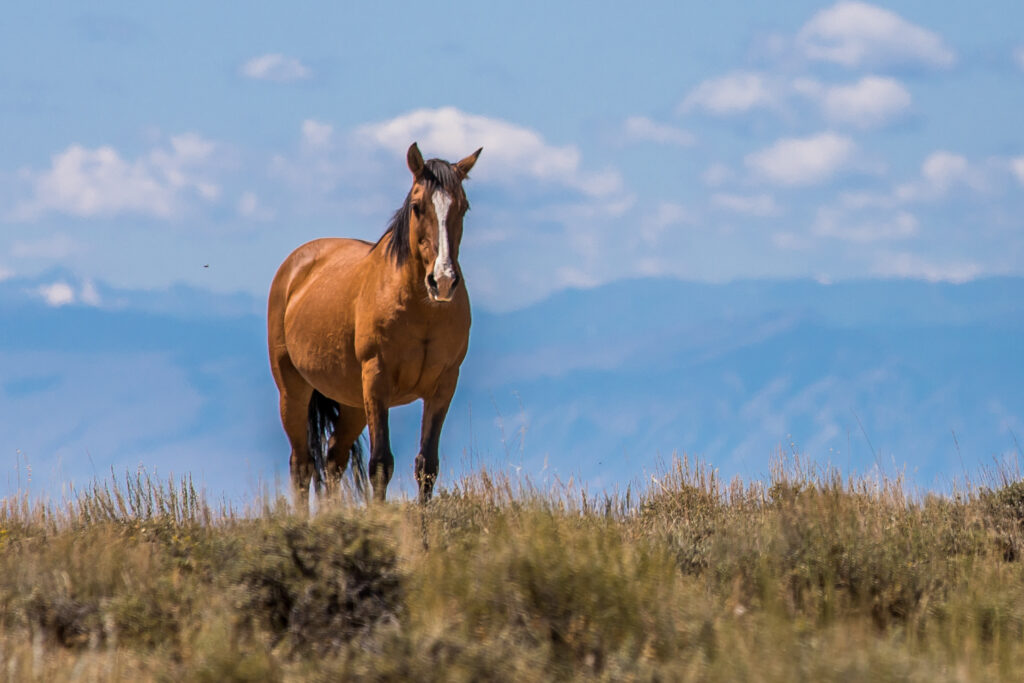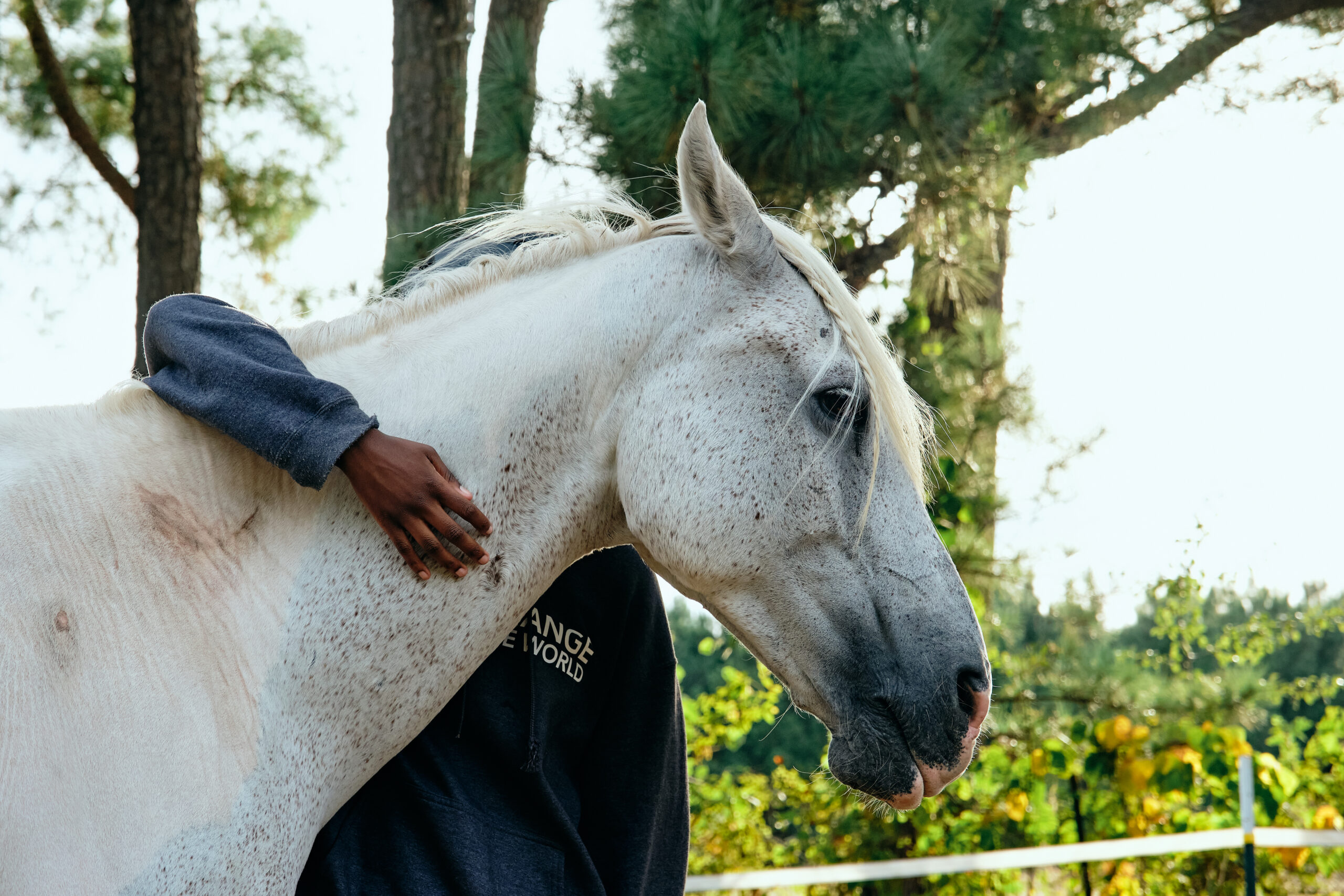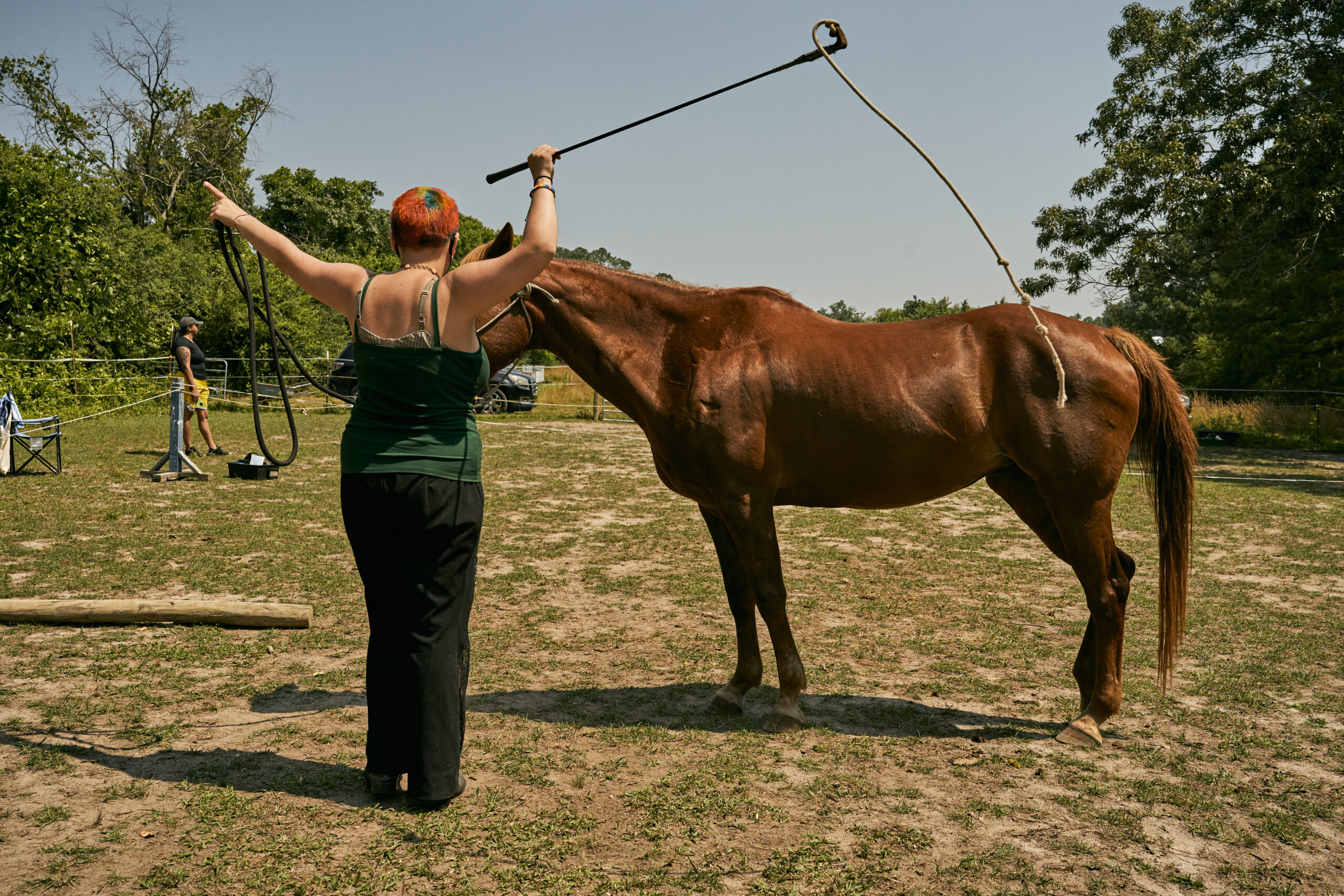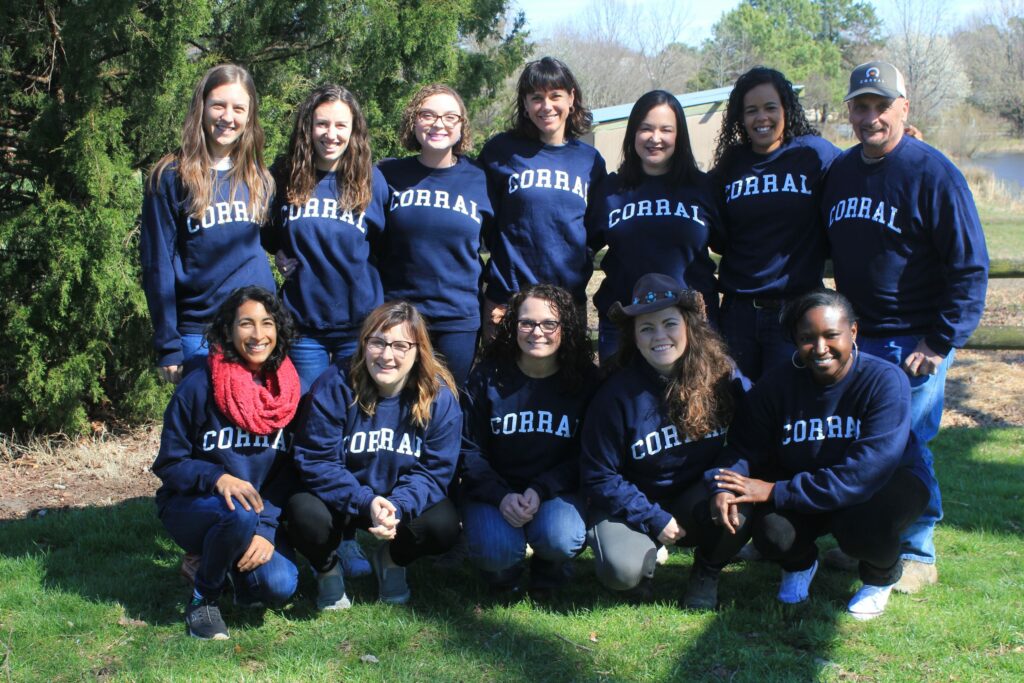Our guest blogger today is Julia Soplop, an author, photographer, wild horse enthusiast, and documentarian. The photo above is a wild horse, taken in the Pryor Mountains of Wyoming and Montana. The horse population there is thought to have descended from the Spanish horses of the Crow Nation.
The image was striking: a young black woman riding an enormous horse through the Oakland protests, fist raised above her head. It was bold, powerful—and uncommon, as the equestrian world is heavily white.
The image of this woman, Brianna Noble, who joined the protest to speak out against the whiteness and racism of the horse industry, sparked heated debates among horse enthusiasts.
Equine sports are exorbitantly expensive, so it seems easy to explain away racial disparities as a simple matter of financial barriers. If people of color in this country have less wealth than white people, of course it follows that fewer people of color can afford to participate in a costly industry. The economic disparity is problematic, but surely no one is against the involvement of people of color if they can afford it, right?
Having spent the last few years studying and writing a book called Equus Rising: How the Horse Shaped U.S. History, I can tell you with certainty: you can’t follow the thread of the horse without encountering the history of systemic racism surrounding it. Today’s barriers to the horse industry extend far beyond cost alone.
The storyline of much of our country’s early development is simple: whoever wielded the horse most effectively won, whether victory meant land, money, status, or all three. First, the Spanish reintroduced the horse as a weapon to conquer the Americas. But the greatest source of Spanish strength became their own downfall when the native peoples of the Great Plains accessed these horses—and learned to employ them much more effectively than the Spanish ever had. This power shift arguably cost the Spanish North America, and the Horse Nations managed to relentlessly beat back white encroachment into much of the plains for nearly 200 years.
And then, it was as if the whole country seemed to take note at the same moment that horses meant dominance. The attacks came from every angle on people of color who had gained power or status in some way through horses.
The government realized it would only be able to remove the Horse Nations from the Great Plains—the last swath of uncontrolled U.S. soil at that time—by “relieving them” of the source of their incredible strength: their horses. The racing industry began to erase the legacy of famed black jockeys, many who had survived enslavement prior to the Civil War, from its history after segregationist laws essentially banned them from the sport. And an emerging genre of literature, the Western, wrote the one-fourth of cowboys who were black right out of the history of the West, portraying the scene as almost exclusively white. Over time, white Americans reclaimed the horse quite forcefully for their own.
All that is to say, labeling the issue of racial disparities in the horse industry today as a matter of finances, while troubling enough, is a gross simplification that denies centuries of U.S. history.
Access to and mastery of horses no longer equates to dominance in the same ways it did a few hundred years ago, but horses still have much to offer. Perhaps most importantly, horsemanship skills, horse-human relationships, and equine therapy empower youth and adults by boosting confidence and teaching work ethic and responsibility.
CORRAL offers girls in the highest risk situations in our community the opportunity to benefit from the power of the horse. At the same time, CORRAL seeks to help dismantle the systemic racism that has excluded people of color from accessing the horse for centuries.





